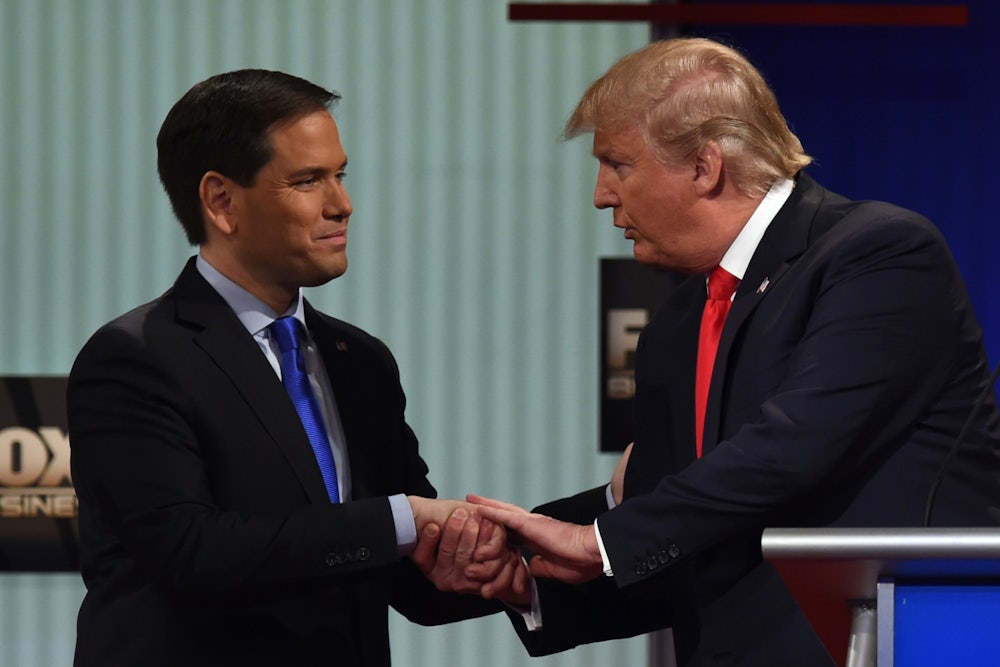After seven months stuck in the denial stage, Donald Trump’s victories in South Carolina and Nevada finally seemed to shake the Republican establishment out of its complacency. They finally realized that Trump could win the nomination. For the last two weeks or so, most of the party has been firmly in the “anger” stage of the Kübler-Ross model. Marco Rubio and Ted Cruz finally went after Trump on the debate stage, and both have been hammering him (with mixed results) on the campaign trail. Mitch McConnell told Republican senators that they could campaign against Trump if they felt like their seats were in danger. Erick Erickson started #NeverTrump, which trended all weekend. The movement to stop Trump from within the party, long dormant, is in full effect.
The next question is: When does it stop? When does the anger stage end and the bargaining stage begin? It could come as early as tomorrow, if Trump sweeps Super Tuesday, or even just massively increases his delegate lead with, say, 13 victories. It may not come until March 15, when Trump will go up against Marco Rubio in the latter’s home state of Florida. But with some mainstream(-ish) Republicans—Chris Christie, Paul LePage, Jeff Sessions, and Janet Brewer—breaking rank already, Trump bargainers will have cover to switch sides. What we may see is a tiered transition to bargaining, with some Republicans joining on March 2, and others on March 16.
And the stage after bargaining? Depression.
